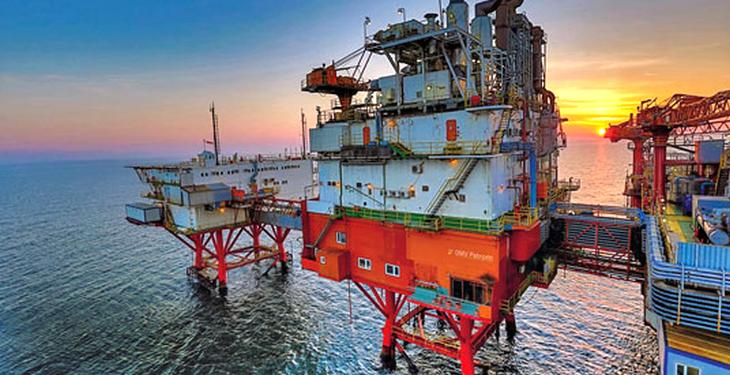Over the past 12 years, the company has invested over 13 billion euros, said Mariana Gheorghe, CEO of OMV Petrom, in the press conference for the presentation of the preliminary financial results in 2017. These investments allow the main oil company in Romania to announce that it detains proven reserves of hydrocarbons for 10 more years, a time horizon similar to the one calculated in 2004, the year of privatization.
“This is the nature of our business,” Mariana Gheorghe explained. “We continue to invest, and it is important for us to have the ability to invest so that we have the prospect of long-term sustainable activity and development.”
Strong financial position
Unlike in 2004, OMV Petrom now has the financial resources to announce that it will invest 3.7 billion lei this year, in particular for increasing oil reserves and mitigate the natural decline of production. The amount is higher than the one invested in 2017 (2.96 billion lei, which was 15% higher than in 2016).
The company capitalized a very favorable year with strong rise in crude oil price (Brent benchmark was on average 24% higher than the previous year, at $ 54.2 per barrel) and solid demand (of fuels, natural gas, and electricity) which led to consolidated sales of over 19 billion lei, 17%, higher. The annual net profit increased by 114%, to 2.48 billion lei, as a result of “cost optimization” amounting to 380 million lei, with a 7% reduction in the number of employees (almost a thousand jobs were lost in 2017) and a reduction in production costs to $ 10.9 per barrel (from $ 17.3 per barrel in 2014).
Improved cash flow allowed for debts reduction, which will make possible more favorable conditions for new financing, Mariana Gheorghe added. The shareholders will be rewarded with dividends in the total amount of 1.1 billion lei, if the proposal of the management will be approved.
Reserve replacement rate of 100%, only with the Black Sea gas
In 2017, 69 new probes and sidetracks (a secondary wellbore drilled away from the original hole, e.n.) were drilled, of which 5 were exploration wells, and with promising results. However, deep onshore production seems not to contribute significantly to improved reserve replacement rate. In 2017, even with a lower production than the year before, the reserve replacement rate was for Petrom in Romania of 33% (2016: 29%) and the proven reserves were sufficient for about 10 years. The average of BP in 2016 was over 55 years in the Eurasian region for natural gas, and about 25 years for crude oil, in the same region.
Thus, OMV Petrom is looking for opportunities for development in the Black Sea, in Kazakhstan and the Eastern Mediterranean. “We have as a target a 100% replacement rate,” mentioned Mariana Gheorghe, and the first of Petrom’s areas of interest is the Black Sea. “It is home to us, we have expertise, we have assets, we have worked here,” said Petrom official, who reminded that the final investment decision in the Neptun Deep offshore block is expected in the second half of this year.
“We started to evaluate the potential for gas sale in Romania, but as Romania only imports 10% of consumption, we have to look for other markets, also. We concentrate on the areas near Romania, we have discussions and we analyze the scenarios, but must also take into consideration the interconnections,” explained Mariana Gheorghe. There are discussions on selling future gas resources with several companies, large consumers or traders, some of them already active on the Romanian market.
A clear no run for the Black Sea gas would be if the Parliament adopted the draft making mandatory for the natural gas producers to sell more than 70% of the production volumes on centralized platforms. This high quota would hinder any negotiation of long-term and flexible contracts for securing investors’ long-term revenues.
